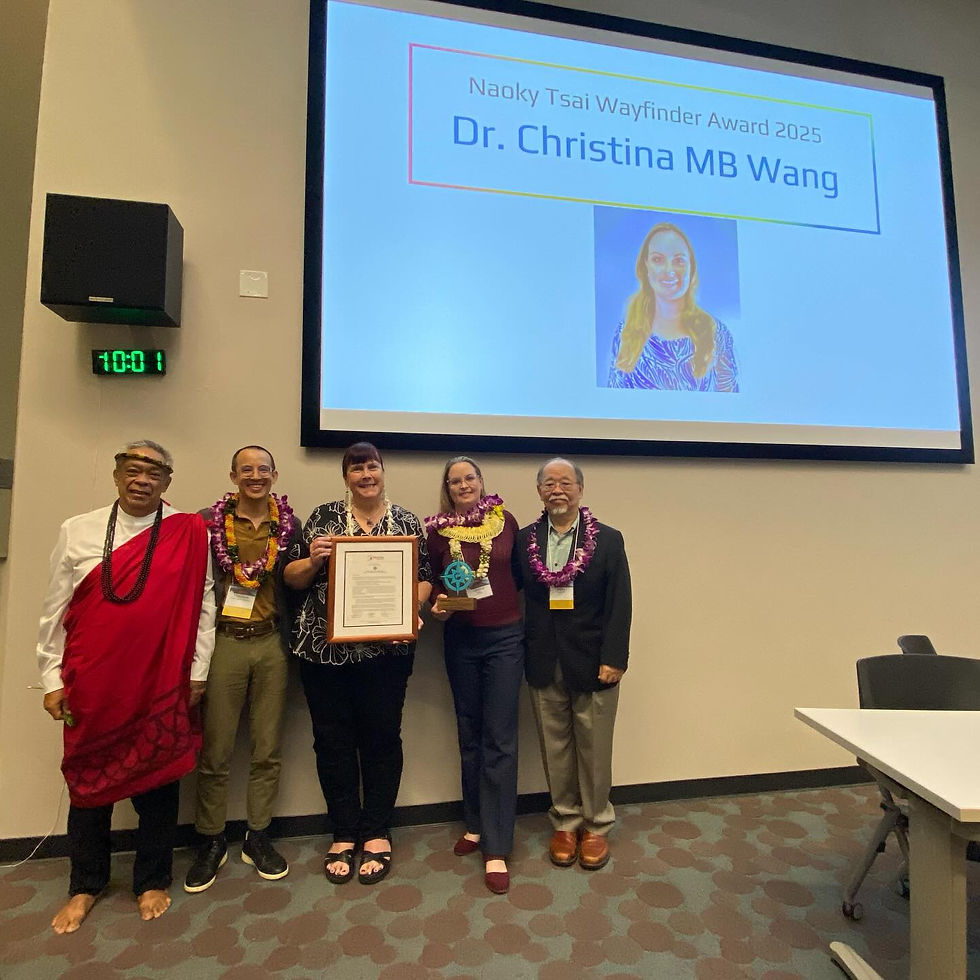2024 Advocacy Updates
- hnakao6
- May 1, 2024
- 3 min read
Constitutional Amendment Set for November Ballot
For the first time in eight years, Hawaii will have a constitutional amendment on the ballot. HB 2802 was passed overwhelmingly in both chambers of the legislature with bipartisan votes.
Article I , Section 23, was placed into the constitution through a voter-approved amendment on the 1998 ballot, part of a growing backlash to same-sex marriage in the wake of the Hawaii Supreme Court’s decision in Baehr v. Lewin that limiting marriage to opposite sex couples may violate the state’s prohibition against discrimination on the basis of sex.
One notable moment came when Senator Mike Gabbard issued an apology for leading the campaign pass the measure inserting Article I, Section 23 into the constitution. Hawaii News Now ran a feature story on the change. The story also included comments from House Speaker Scott Saiki and Judiciary and Hawaiian Affairs Chair David Tarnas, who lost his seat after voting against the bill authorizing the 1998 vote.
On April 19, Grants & Advancement Manager Nikos Leverenz participated in a panel discussion at Ka Wai Wai Collective in Moiliili with Judge Dan Foley, the lead attorney for Nina Baehr and Genora Dancel in the 1990s, former Lieutenant Governor and Attorney General Doug Chin, ACLU of Hawaii Policy Director Carrie Ann Shirota, and Council for Native Hawaiian Advancement Policy Manager Madelyn McKeague. The panel was hosted by KHON2’s Max Rodriguez, who is also on the board of the Hawaii LGBTQ Legacy Foundation. Earlier in the week, Leverenz appeared on Hawaii News Now Sunrise with ACLU of Hawaii Executive Director Salmah Rivzi and state Sen. Chris Lee, co-chair of the legislature’s Equality Caucus.
For more information, please visit the Change 23 website.
Awaiting Governor Josh Green’s Signature:
Adolescent Access to Prevention Services. SB 3125 authorizes those who are 14 years or older to consent to medical care for sexually transmitted infections, pregnancy, and family planning services. This includes access to pre-exposure prophylaxis (PrEP) medication to assist with the prevention of HIV transmission. Mahalo nui to Ryan White Administrative Manager Kekoaopololu Kealoha for providing in-person testimony before the Judiciary & Hawaiian Affairs Committee.
Bills that didn’t make to the Governor’s desk this year include:
Strengthening Gender-Affirming Care. HB 2079 relaxes requirements for the prescriptions of medications needed for gender-affirming care, allowing for telehealth services. The bill would also make the state a “safe haven” for gender-affirming care by prohibiting the dissemination of medical information to agencies from other states that seek information regarding such, similar to protections covering the reproductive health care services. The Senate failed to hear the bill after passing the House.
Naloxone for Hawaii Hotels & Restaurants. HB 2253 would have required hotels and restaurants serving alcohol to maintain an inventory of an opioid antagonist, including naloxone, which helps reverse accidental overdoses. Last summer, Honolulu became the first city in the nation to require bars and restaurants to carry naloxone to help prevent fatal opioid overdoses. The Senate failed to appoint conferees.
Behavioral Health Crisis Drop-Off Centers. One recommendation of HHHRC’s Sequential Intercept Model Report, released in January, was the establishment of facilities that could respond to a behavioral health crisis largely apart from the criminal legal system. The Sequential Intercept Model is a tool developed by the federal Substance Abuse and Mental Health Services Administration that is used to better understand how behavioral health is treated in the criminal legal system. HB 1831 would establish a pilot program to implement centers in each county. House and Senate Conferees failed to reach an agreement.
Opioid Settlement Funds Management. HHHRC supported HB 2806, a bill to create a special fund to oversee the Hawaii Opioid Settlement Advisory Committee’s expenditure of opioid litigation proceeds. The bill was deferred by the House Finance Committee.
Limitations on Solitary Confinement. HHHRC also submitted testimony in support of HB 1812, which would limit the use of solitary confinement in the state’s correctional facilities given the heightened risks to the health of those who are incarcerated, particularly those with mental health conditions. The Senate failed to hear the bill after passing the House.
Psilocybin Breakthrough Therapy for Major Depressive Disorder & Treatment-Resistant Depression. Although HB 2630 passed its first two committees, the House Finance Committee failed to hear the bill.










Comments